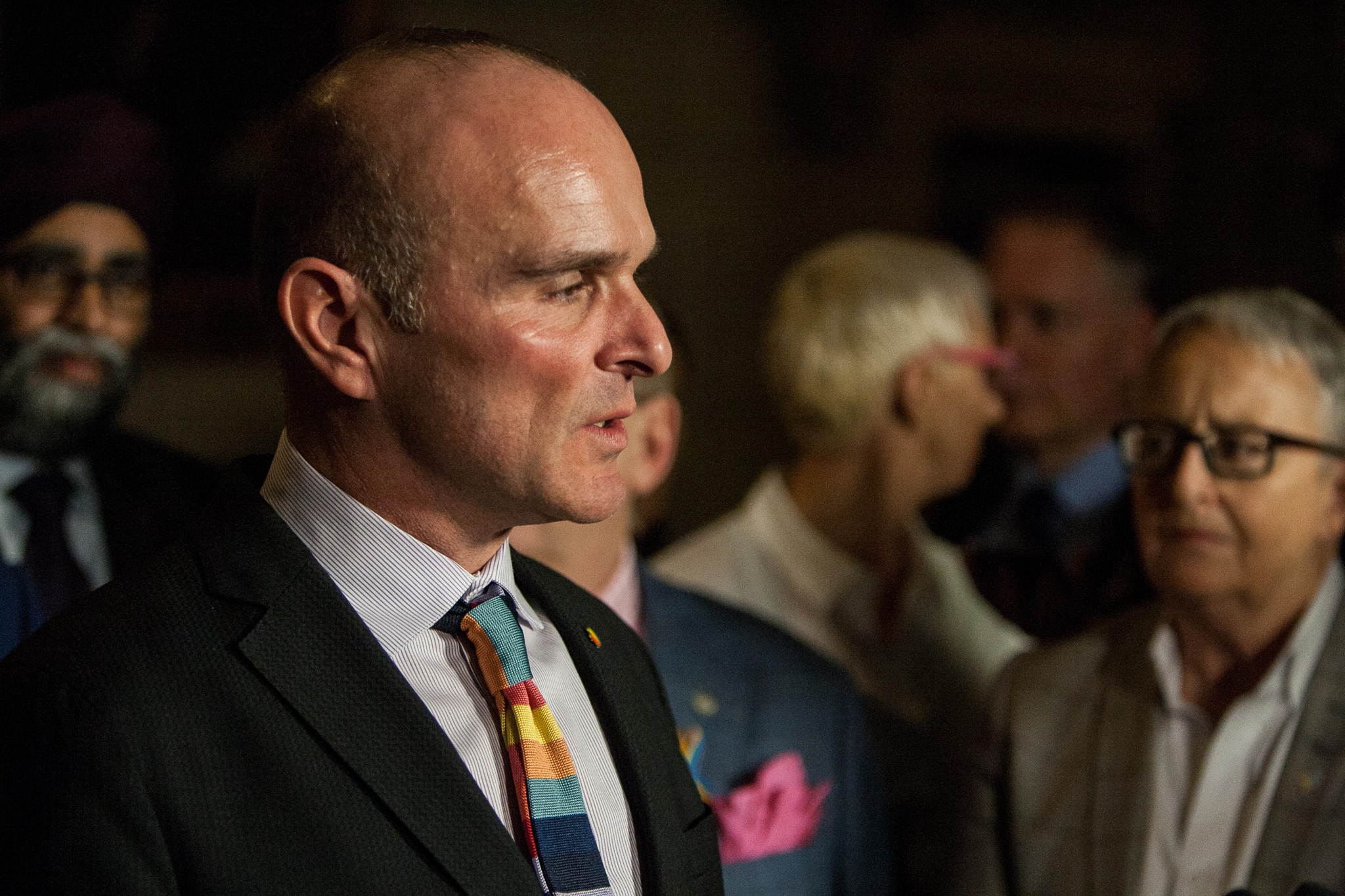Queer activists are speaking out against the Liberal government’s long-awaited justice reform bill for not repealing provisions that unfairly target LGBT people and sex workers.
Bill C-75 is a massive, 300-page bill that will modernize aspects of the Criminal Code and make dramatic changes to criminal court proceedings. But it will not change the Harper-era sex work regime, and won’t criminalize the mutilation of intersex children or repeal “bawdy house” laws or obscenity laws, which disproportionately affect queer and trans people.
Last year, the government promised to “take action” on The Just Society Report, published by LGBT lobby group Egale, which called for sweeping changes to the government’s relationship with LGBTQ Canadians.
Constitutional lawyer Douglas Elliott, who helped author the report, is now accusing the Liberals of backtracking on some of proposals that were contained within it.
“They didn’t promise outright to implement everything in the report, but it’s the tenor of what was said publicly and privately as well,” Elliott says.
The sex work laws, which the Liberals promised to repeal during the last election, are an especially strong sticking point.
The justice minister did not give a timeline for any new bill relating to sex work, although the government’s own report on community consultations found that there was consensus among those consulted for “the repeal of offences that criminalize those who sell their own sexual services.” The Standing Committee on Justice and Human Rights is currently studying the sex work laws and their impact on human trafficking.
“I carefully consider the views of stakeholders, experts, and all Canadians when making decisions about criminal justice legislation and programs. In terms of the review of the former C-36 [the Harper government’s bill that recriminalized sex work], that work continues,” Justice Minister Jody Wilson-Raybould said to Xtra in an emailed statement.
“We could go out and seek to have the law struck down again, but that was the crux of our report. It’s not fair to force the LGBT community to keep litigating these cases while governments take their time to hand out crumbs of equality,” Elliott says. “The government should just take up the responsibility they gave themselves in 1982 and repeal all these unconstitutional laws.”
While the third-party NDP supports repealing the sex work provisions, LGBTQ issues critic Randall Garrison says that there are no plans for the party to introduce a private member’s bill on the issue.
“The chances for us to bring them forward are essentially nil. We depend on the Liberals to be open to amendments,” he says.
Anal sex
The bill would change the Criminal Code so that anal sex and vaginal sex are treated the same.
Under Section 159 of the code, there is a different age of consent for anal sex compared to vaginal intercourse, and it is a crime to have anal sex if more than two people are present. Courts in five provinces have struck the section down as unconstitutional, but charges continue to be brought under it across Canada. Activists have called for its repeal for decades.
Bill C-32, which would have repealed the anal sex provisions of the Code, was introduced with much fanfare in November 2016. Despite all parties agreeing to the original bill, it was never brought to a vote. C-32 was incorporated into another reform bill, C-39, four months later. C-39 was also never brought to a second reading.
But Liberal MP Randy Boissonnault, who serves as special advisor to the prime minister on LGBTQ2 issues, says the government intends to pass C-75 this time.
“We heard from the community that [Section 159] is a piece of archaic legislation that has continued to affect young men, so it’s important to get this debated and passed through the house,” he says.
Bawdy house laws
When asked if the government is walking back its commitment to act on The Just Society Report, Boissonnault says, “Categorically, no.
“The Just Society Report was very clear that it wanted an apology. We did that. There was a class action lawsuit that was put together and we settled that. We committed to . . . expunging records for people who still have criminal records for same-sex consensual activities.”
He says the bawdy house provisions of the Criminal Code still stand because they impact straight and gay people, and because their use has been strictly limited by a pair of Supreme Court decisions in the last decade.
The Labaye decision in 2005 restricted the definition of indecency in the bawdy house law to acts that cause serious harm. The Bedford decision in 2013 struck the section that dealt with sex work in a bawdy house. According to queer historian Tom Hooper, more than 1,300 men were charged under these sections in bathhouse raids between 1968 and 2004, but only one charge was laid under the bawdy house law in 2016, and there were no convictions.

Credit: Courtesy Tom Hooper
C-75 leaves the bawdy house provisions intact, but does allow for the option that the charge of operating a common bawdy house be treated as a summary offence, and reduces the maximum penalty from five years to two.
Marginalized groups
The bill would require judges to consider the circumstances of an accused person from a marginalized group when deciding on bail conditions. This may have implications for queer and trans people who come into contact with the justice system.
“The bill does not define vulnerable or marginalized, allowing a judge broad discretion to assess applicants on a case-by-case basis,” Justice Minister Jody Wilson-Raybould said in an emailed statement.


 Why you can trust Xtra
Why you can trust Xtra


